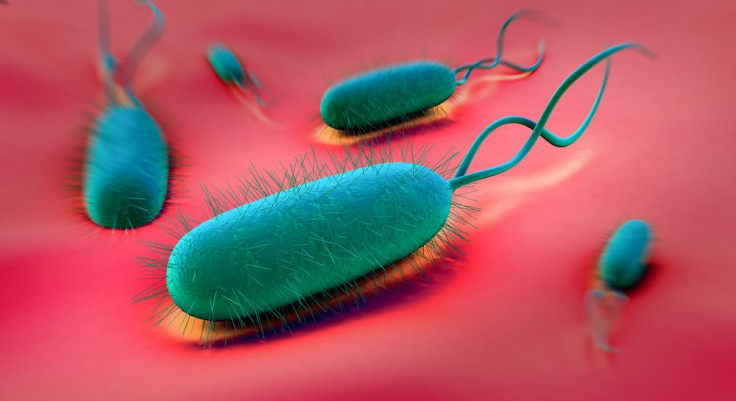Human Microbiome Varies By Sex And Diet, Findings That Could Improve Health

Researchers have known diet affects the balance of the hundreds of bacteria living inside people's stomachs and intestines. But a paper published Tuesday shows that men's and women's microbiomes respond differently to the same diet.
It's not clear how sex causes the differences. Scientists suspect hormones and immune systems may favor certain species of bacteria over others. Ultimately, these findings could lead to better dietary guidelines, custom fitted for men and women.
The human microbiome is an emerging area of science dealing with the hundreds or thousands of types of bacteria living upon and inside everyone. Some of these bacteria are useful in digesting food or warding off disease. Others may play a role in illness. Probiotics are gaining an increasing share of the supplement market. And some scientists have even begun to consider the human microbiome as central to health and wellness as the human genome.
But there's still so much researchers don't understand. Until this study, announced in a news release from the University of Texas at Austin, it was unclear whether sex was a factor in the balance of microbiomes. "Our study asks not just how diet influences the microbiome, but it splits the hosts into males and females and asks, 'Do males show the same diet effects as females?'" says lead author Daniel Bolnick, professor in the university's College of Natural Sciences.
They investigated the question by exploring the gut microbes in two species of fish and in mice. They also consulted data from previous studies on humans. While male and female mice showed little variability (they're not sure why), the fish and the human digestive system microbes exhibited clear differences, including in species diversity and population. "In some cases, different species of microbes would dominate," they said.
The researchers say more diversity of gut bacteria has been associated with lower risks for obesity, diabetes and inflammatory bowel disease. Given the importance of the microbiome, scientists are eager to understand how food affects its balance. In December, for example, researchers at Duke University discovered that eating primarily meat or primarily plants dramatically changes the kinds of quantities of bacteria in people's guts.
Yet they're still a long way from making any dietary recommendations. "To guide people's behavior, we need to know what microbes are desirable for people," Bolnick says. "Diet and sex do interact to influence the microbes, but we don't yet know what a desirable target for microbes is." What his findings show is that men and women should not be studied as though their microbiomes will react equally. "All along we treated diet as if it works the same for men and women," he says. "Now we'll be approaching studies of therapies in a different way."
Source: D. Bolnick, et al. Nature Communications. 2014.



























